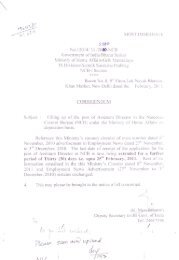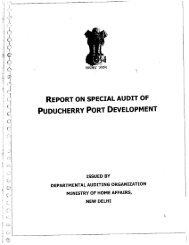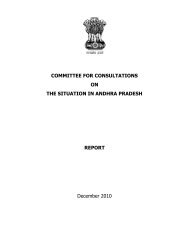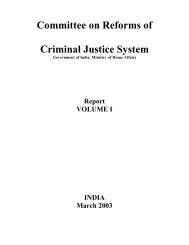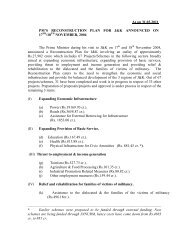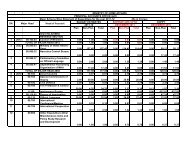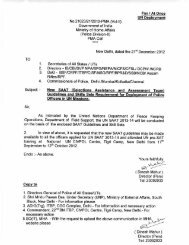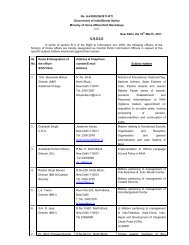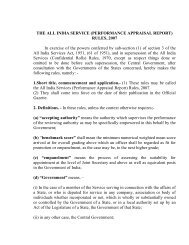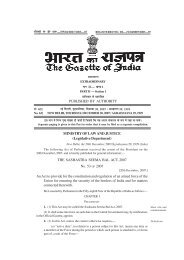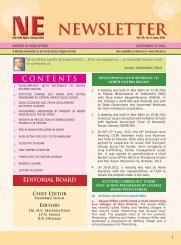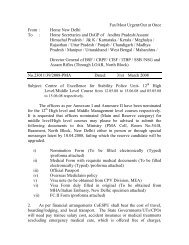Book of Integration Council New - Ministry of Home Affairs
Book of Integration Council New - Ministry of Home Affairs
Book of Integration Council New - Ministry of Home Affairs
You also want an ePaper? Increase the reach of your titles
YUMPU automatically turns print PDFs into web optimized ePapers that Google loves.
oppression, persecution and other forms <strong>of</strong> deprivation resulting in disturbing<br />
communal harmony. All State Governments must collectively endeavor to<br />
discourage commual and regional animosities. We must evolve some institutional<br />
mechanism at the national level to mitigate hatred and violence from amongst<br />
communities and regions. We should inculcate the principles <strong>of</strong> harmony and<br />
tolerance on the one hand and mobilize constructive forces <strong>of</strong> society in the<br />
cause <strong>of</strong> national unity and solidarity. This is possible by providing good<br />
leadership, encouragements and justifiable articulation <strong>of</strong> interests. At the curative<br />
level the police and Para military forces and other agencies <strong>of</strong> the government,<br />
concerned with the maintenance <strong>of</strong> law and order, must be sensitized to the need<br />
for communal harmony. Officials <strong>of</strong> the highest efficiency, impartial and honest<br />
record should be given the tasks <strong>of</strong> maintaining communal harmony. Zero tolerance<br />
against all those who incite communal tension or take part in violence should be<br />
the order <strong>of</strong> the day. Special courts should be set-up for the speedy trials <strong>of</strong><br />
communal cases. The rehabilitation <strong>of</strong> the victims <strong>of</strong> communal violence with<br />
adequate financial and social assistance should also be ensured.<br />
Though we have been successful in containing terrorism and communalism<br />
in Uttarakhand.We have problems <strong>of</strong> different nature. Uttarakhand has an<br />
international border <strong>of</strong> about 300 kms with China and 275 kms with Nepal.<br />
There is a large population <strong>of</strong> ethnic Nepalese and Tibetans in the State. The<br />
open porous border multiplies the threat perception manifold. In the present<br />
scenario, it is a formidable task to monitor the movements <strong>of</strong> people across this<br />
porous border. This can be successfully used by organizations inimical to India<br />
to infiltrate and set up camps in the uninhabited and remote forest areas on the<br />
one hand and on the other to carry out the business <strong>of</strong> fake currency notes,<br />
narcotics, arms peddling and other kinds <strong>of</strong> subvertive and antinational activities.<br />
There have been reports that illegal cattle trade across the eastern border <strong>of</strong> the<br />
country has also been a source <strong>of</strong> funding terror activities. This is a matter <strong>of</strong><br />
serious concern which needs concerted action on behalf <strong>of</strong> both the state<br />
governments as well as the central governement.<br />
Since the issue has international implications, the above facts clearly spell<br />
the need for some kind <strong>of</strong> documentation for the movement <strong>of</strong> national <strong>of</strong> both<br />
the countries to & fro across the border. A policy needs to be evolved at the<br />
appropriate forum which addresses the security concerns <strong>of</strong> Uttarakhand. Liberal<br />
flow <strong>of</strong> funds from the Union Government for strengthening transport,<br />
communication and security network along the border is also sine-qua non for<br />
the country as a whole.<br />
179



